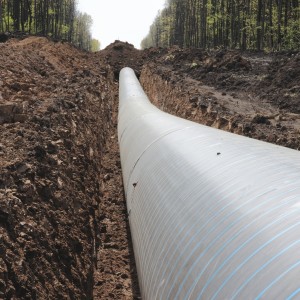Russian revanchism is a repeated concern for the governments of many of the Central and Eastern European states. For these countries, membership in western organizations including the European Union and NATO offers economic benefits, but comes with the risk that moving too far away from alliance with Russia will provoke some sort of aggressive response from the government of Vladimir Putin. On Wednesday, leaders from Lithuania, Ukraine, Georgia, and Moldova spoke to reporters and lawmakers at an event hosted by the American Foreign Policy Council, emphasizing the role that European energy security plays in global security and reiterating the need to both stop the Nord Stream 2 project and to promote the use of American energy and technology.
“Putin’s action is not limited to his aggression or use of military force. Russia’s sophisticated use of information warfare including cyberattacks is well know. Vladimir Putin also uses Russia’s energy supplies as a weapon against neighboring states. Nord Stream 2 is a political project that will increase Europe’s reliance on Russia,” said American Foreign Policy Council President Herman Pirchner.
The Nord Stream 2 pipeline is a proposed project that would bring natural gas from Russia through the EU to Germany. For the countries whose leaders spoke on Wednesday, the pipeline is far more than an infrastructure project. Construction of the pipeline would provide Russia with additional leverage over European countries, they warned.
“Nord Stream 2 is one of the elements of energy weapons used by Russia against the world,” said Ukrainian parliamentary chairman Andriy Parubiy, who spoke through an interpreter.
The importance of energy security is not lost on Ukraine, where Russia has used its control over the energy markets to enact political concessions. On two occasions in recent memory, Russia halted gas shipments to Ukraine in the middle of a winter cold snap until the government there agreed to price increases and political concessions.
“Ukraine knows for sure that gas supplies, for Russia, are not about the economy. For Russia natural gas, first of all, is a mechanism for political influence,” Parubiy continued.
While some analysts have questioned America’s involvement in the region, saying that it has provoked Russian revanchism, the leaders repeatedly expressed their desire to work with both the U.S. government and American businesses to expand their sources of energy. Allowing Russia to have a monopoly over energy supplies gives the Russian government a worrying amount of control over neighboring countries, the leaders emphasized.
“Nord Stream 2 is a political, not an economic, project,” said Lithuanian Speaker of the Seimas Viktoras Pranckietis.
For Lithuania, constructing a gas terminal which allows it to recieve gas shipments from overseas was an important step in reducing its dependence on Gazprom and Russian energy. After completion of the terminal, natural gas prices fell by 30 percent. Last year, Lithuania received shipments of American natural gas for the first time, a sign that its dependence on Russian energy was further weakening.
When possible, Lithuania, Moldova, Ukraine, and Georgia are looking for ways to become energy secure through the development of domestic energy sources or through trade with neighboring countries. This offers an opportunity for American businesses, many of which have the technical expertise these countries need.
“It is very important that U.S. business comes to this part of the world,” said Pranckietis.
The Moldovan government agreed.
“In order to have independence, we look for solutions and we found a solution. Now we are starting the process of building a gas pipeline between Romania and Moldova, because Romania in three years will have enough gas to cover their needs and our needs,” said Andrian Candu, chairman of the Moldovan parliament.
The countries see energy security as a vital part of their independence and warn that construction of Nord Stream 2 provides Russia with additional money to fund expansionist actions abroad, while spreading corruption in Europe. The pipeline still awaits approval in Europe and the speakers urged the American government to throw its influence against the project.
“Mark my words, Nord Stream 2 will be stopped,” said Parubiy with confidence.

